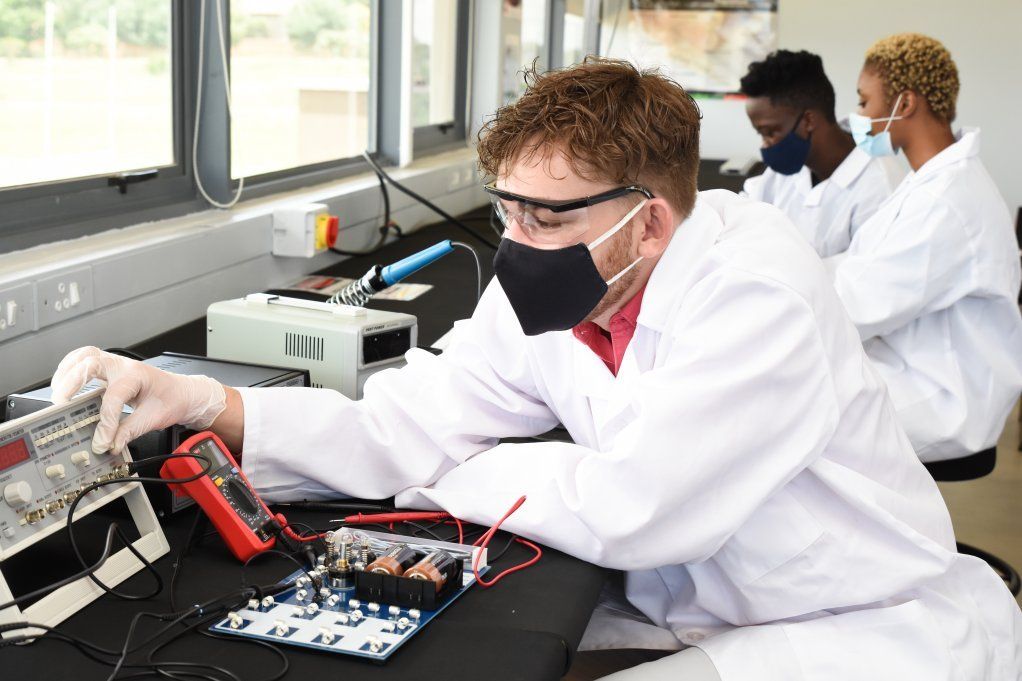THE IIE MSA'S 3 NEW STATE-OF-THE-ART LABS BOOST PROSPECTS OF ENGINEERING STUDENTS
PREPARING GRADUATES TO TAKE ON THE WORLD OF WORK FROM DAY 1!

IIE MSA, a brand of The Independent Institute of Education, SA's largest and most accredited private higher education provider, has built three new high-tech engineering laboratories fitted with the latest digital technology to enable engineering students to design, analyse and test their creations. The laboratories are located at the IIE MSA campus in Johannesburg, Gauteng.
“We need more engineers. For the student, the objective of having an engineering laboratory is to ‘practise by doing’. Laboratory courses help them gain insight and understanding of the real world, which they learn by a shift from textbook learning to assimilating that learning through observation and doing," says Neil Manson, IIE MSA engineering, information and communications technology, and science and health school head.
“However, there’s little point in doing this with outdated technology, as those students will not be acquainted with it in their first work experience."
Manson noted that, as Industry 4.0 and automation become more prevalent, engineers will be a critical driving force of the global economy, including in South Africa.
The emphasis on teaching and learning in laboratories in the modern engineering curriculum has increased because it helps students become more confident about their knowledge and skills. This therefore requires good academic institutions to invest more in laboratories and to ensure the technology installed in them is current.
IIE MSA engineering programme manager Wihann van Reenen says the new engineering laboratories are equipped with the latest technological advances in the respective fields of engineering.
“This allows students to be acquainted with current digital technologies instead of outdated ones – a distinct advantage when it comes to entering the workforce,” he says.
IIE MSA opened a physics laboratory on campus in 2020. It began designing a multimillion-rand suite of additional well-equipped laboratories in July last year.
The first facility is a general-use electronics laboratory for the electrical and electronic engineering programme. The second is a chemistry laboratory. The third is a mechanical engineering laboratory that caters for all the major testing required in the course, such as fluid dynamics, thermodynamics and materials strength testing. In addition to the imported engineering equipment, a computer laboratory with high-spec computers was created for the engineering students.
“A lab holds critical importance in training engineers. In technical subjects, students would far rather practically apply data in the lab than sit in a lecture hall hearing pure theory.
“Together with all necessary computers and additional equipment, we can offer our students more modern machinery within our smaller, more intimate classes and remarkable one-on-one supervision,” Mason notes.
Van Rheenen added that students would use the facility during class-based demonstrations and experiments, and would also have the opportunity to use the equipment for individual and group-based exploration during their design and research projects.
“Whereas many lab facilities offer analogue equipment, ours will be digital and will have ‘smart’ wireless technology, facilitating links to various required apps, phones and personal computers. This technology, in turn, replicates what our first tranche of graduates will likely work with within the private sector,” he said.
Visit IIE MSA to view their offering of Engineering degrees, which are endorsed by the Engineering Council of South Africa.
Click here to view original article at Engineering News.










